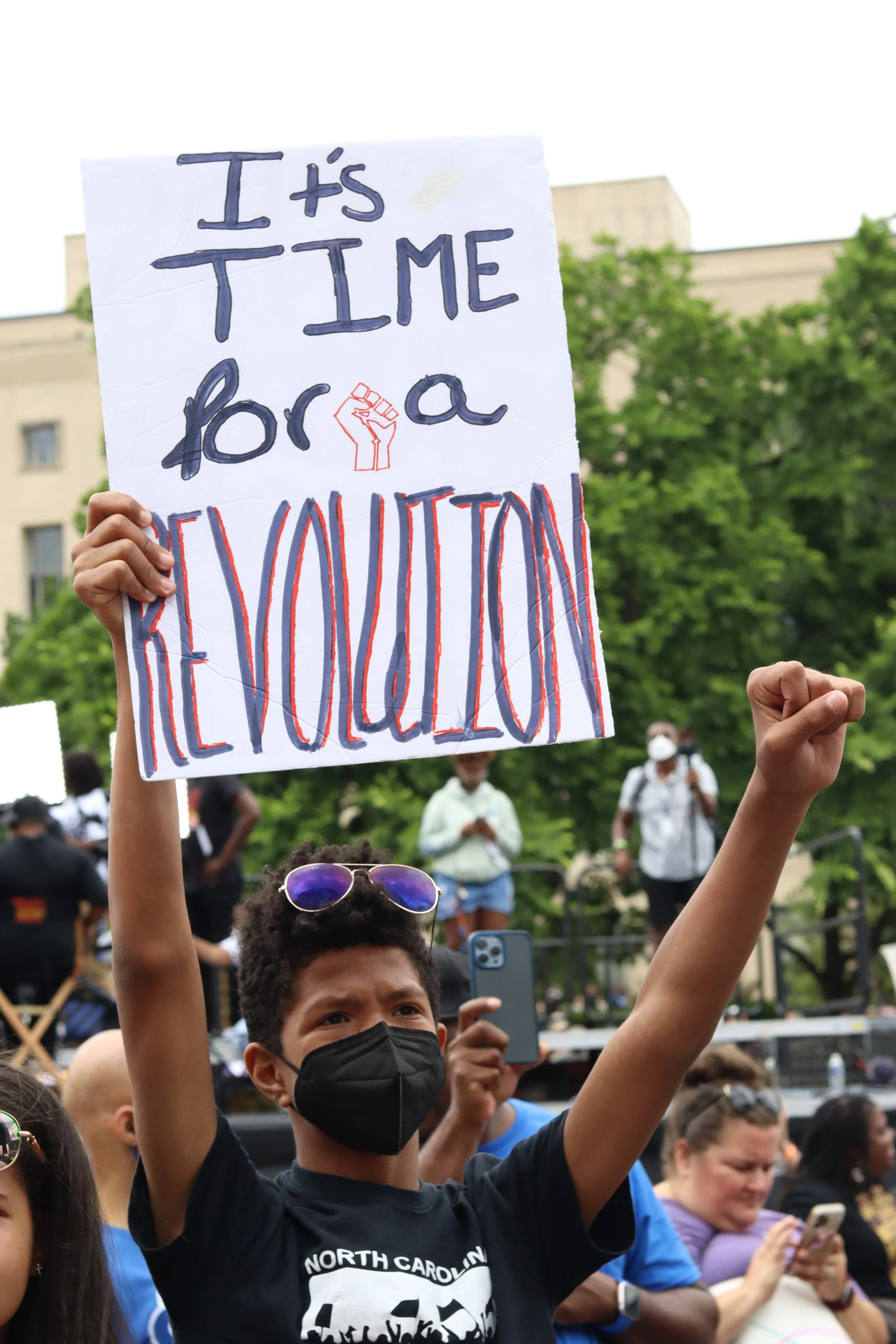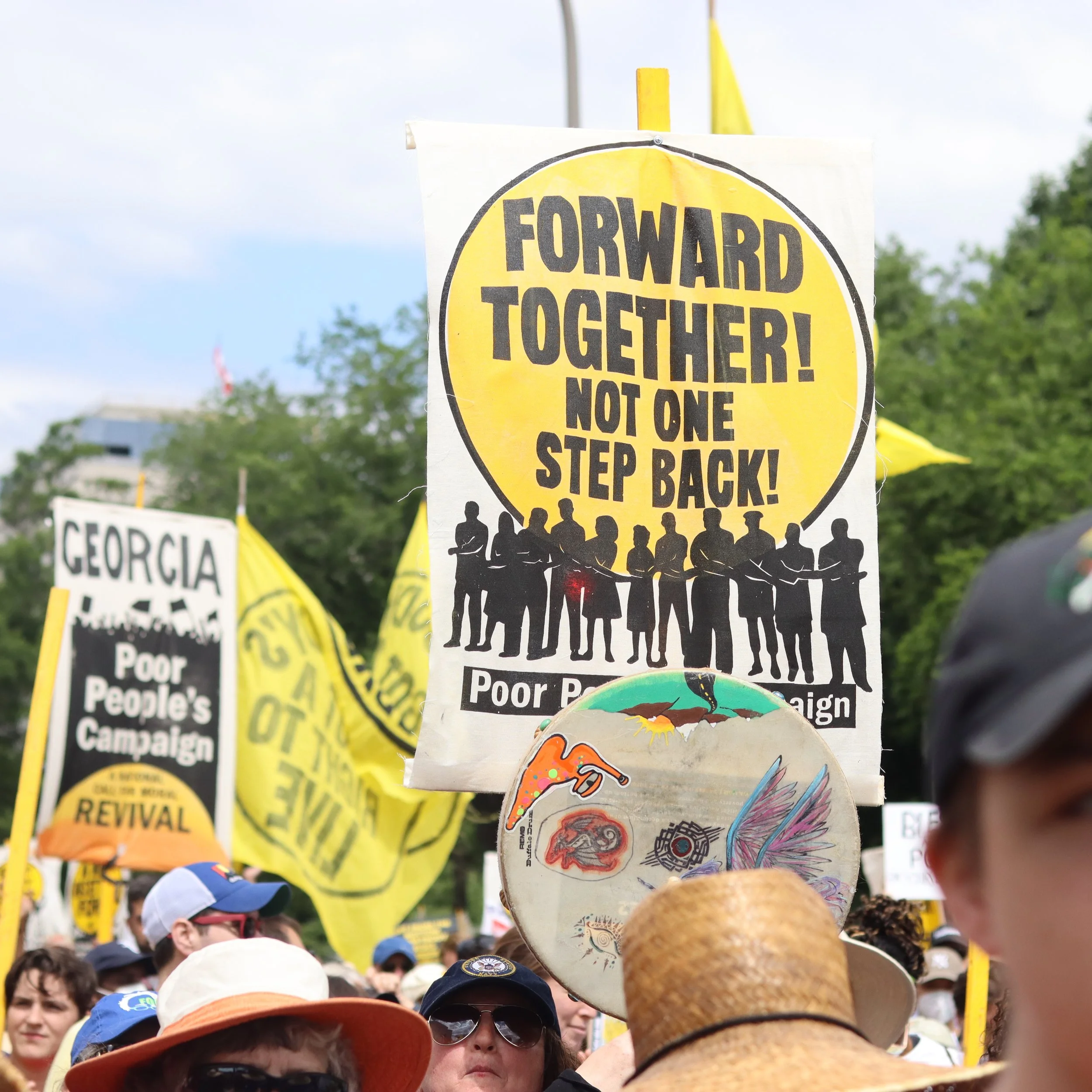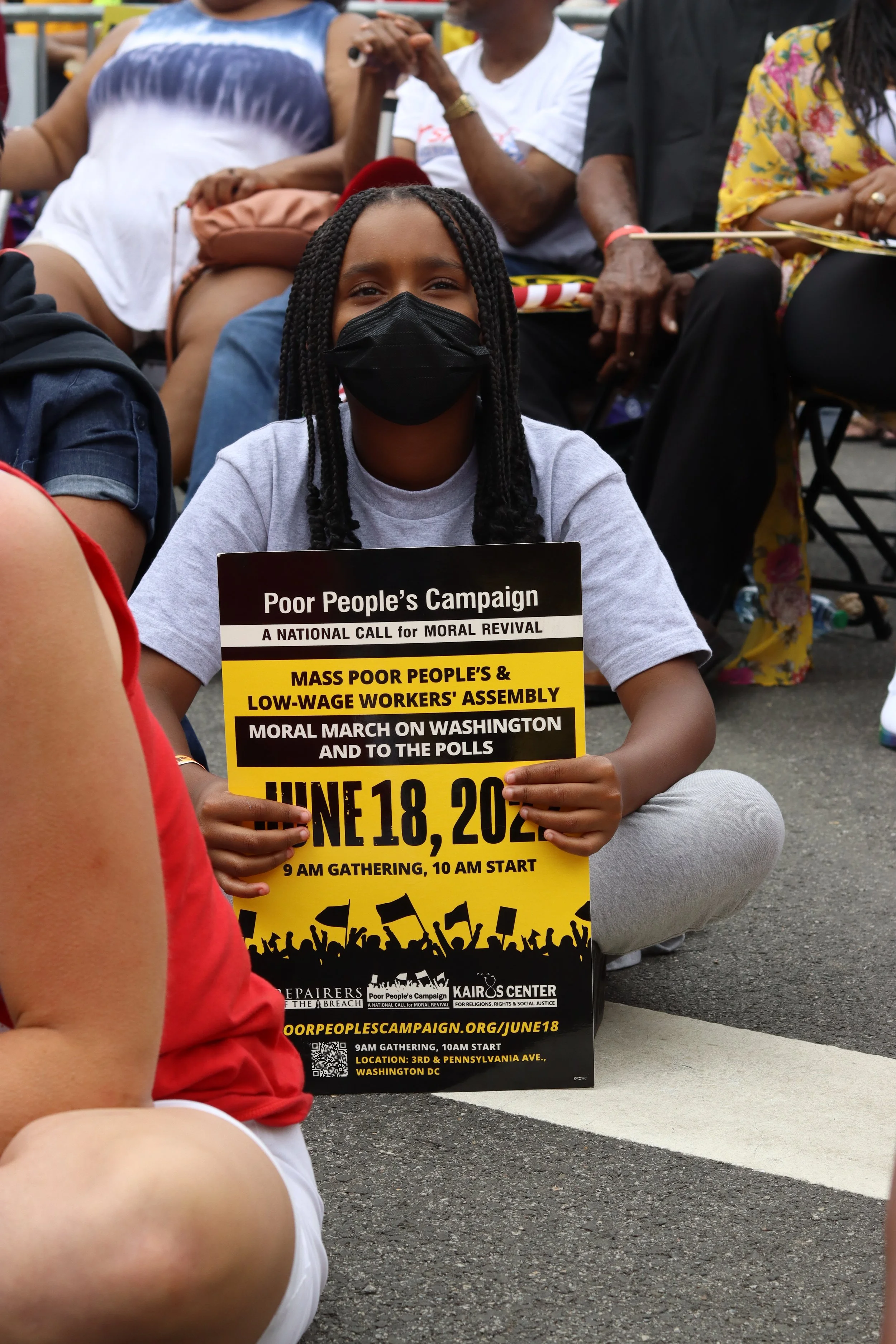Thousands gather in Washington D.C. for a moral meeting in the streets
A young boy holds up a placard at the Poor People’s Campaign (PPC) Mass Poor Peoples and Low-Wage Workers’ Assembly and Moral March in Washington D.C. on June 18, 2022. (Esther Paul for Public Square Amplified)
Washington D.C.—On June 18, activists, leaders and organizers joined over 30,000 people from across the nation on Third and Pennsylvania Avenues in Washington D.C. for the Mass Poor Peoples and Low-Wage Workers' Assembly and Moral March. Organized by the Poor People's Campaign (PPC), citizens gathered to demand urgent attention to economic and political policies that negatively and disproportionately affect poor and low-income communities in America. PPC called on the government to take responsibility for the stark wealth gap.
Rev. Dr. William J. Barber II and Rev. Dr. Liz Theoharis, co-chairs of PPC, organized the Moral March, which they call a fusion movement. A cross-section of citizens representing a coalition of age, gender, ethnicity, class, cultural background, sexual identity, and political and religious affiliation to lend their voice and presence to what they believe to be the true evil of injustice in America: poverty.
Ellen Canavan, a resident of North Carolina, said injustices are often viewed as separate entities instead of part of a whole, which is the same for people—even if one person is affected, everyone should be concerned.
“Sometimes I feel like it gets scattered, you know, people get worked up on one issue or another,” she said. “But I'm angry at the injustice. Because what you do to someone else, you're doing it to yourself.”
For Canavan and the PPC, all forms of injustice have a combined effect that impacts all of America, which is why fusion movements and coalitions are so important to PPC. A month ago, PPC and N.J. activists joined together to raise the call for the nation to address the pressing issues of the day, including the need for affordable housing, universal healthcare, prison reform, abortion rights and better labor conditions.
Armed with placards printed with phrases such as “books, not bombs” and “stop racism now,” the diverse crowd cheered just miles away from the U.S. Capitol. The rallying slogan “Forward together! Not one step back!” acknowledged the intersectionality of the PPC movement and the strength of unity and numbers.
Marchers of the Poor Peoples Campaign (PPC) held placards during the Mass Poor Peoples and Low-Wage Workers’ Assembly and Moral March in Washington D.C. on June 18, 2022. (Esther Paul for Public Square Amplified)
“Today, make no mistake America, we are determined to bend the moral arm once again in America,” Barber told the crowd. “We are resolved not to stop until we no longer have to fight…until we no longer have breath to breathe. We are resolved not to stop until we no longer have strength to give.”
“We are the Poor People's Campaign, a national call for moral revival, and together with our allies, we won’t be silent anymore,” he continued.
Community activists like Pam Garrison, Kenia Alcocer, Min. Savina Martin, Jamelle Hill, Denise Coleman and other faith leaders took to the podium to testify how these injustices have affected their lives, children, and their neighborhoods.
"I want to tell you what they stole from me, just one thing they stole from me, they stole my motherhood, they stole my children's childhood," said Garrison, the tri-chair of the West Virginia Poor People's Campaign. "The memories they have of me growing up...I'm absent in my kids' memories. They remember mom always working."
Barber made clear in his message that change is imminent, and a shift in the political system needs to occur for their demands to be met. The demands include permanently expanding welfare benefits, raising the minimum wage to a living wage, expanding unemployment insurance, providing quality health care for all and safe and quality housing for all by ending evictions.
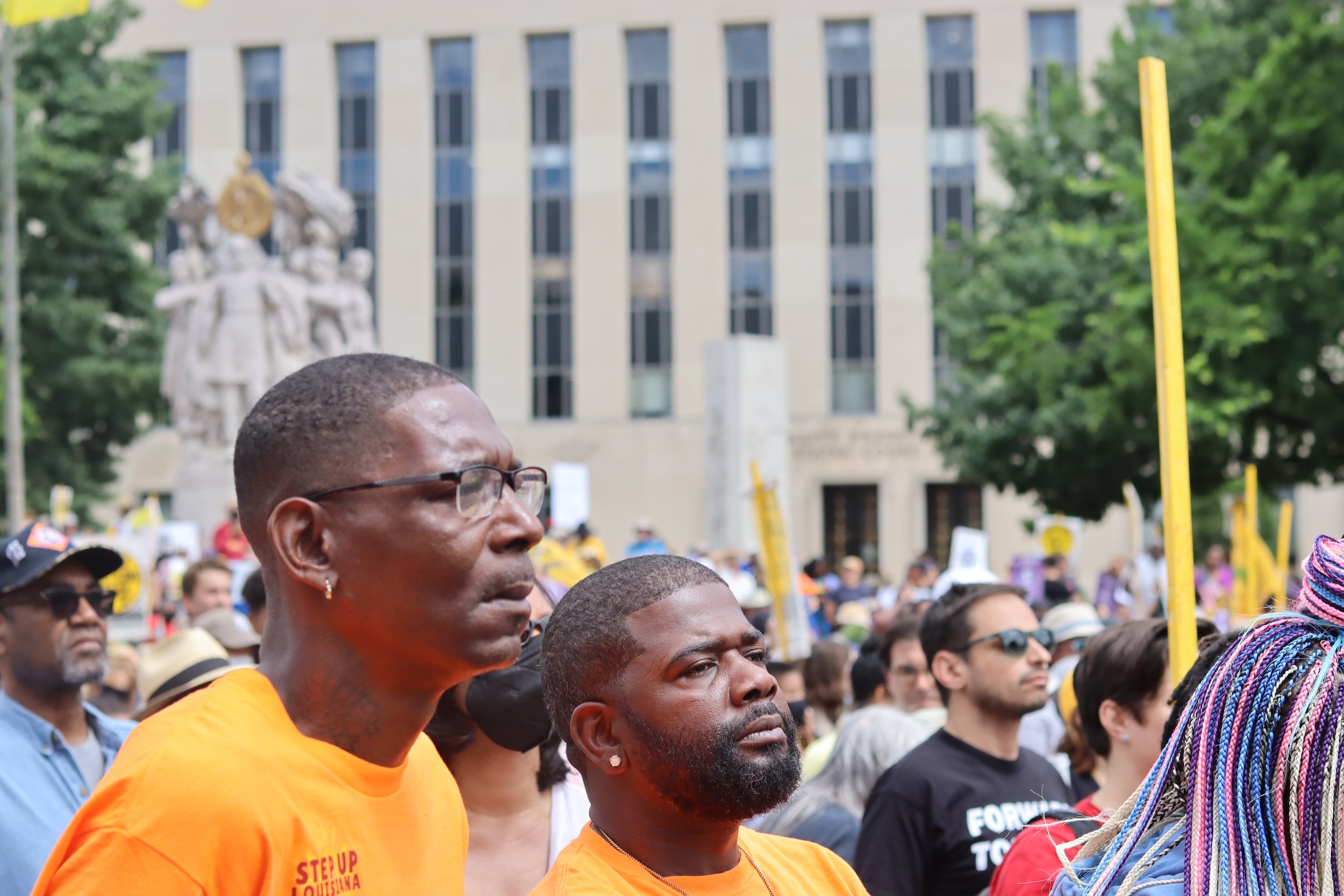
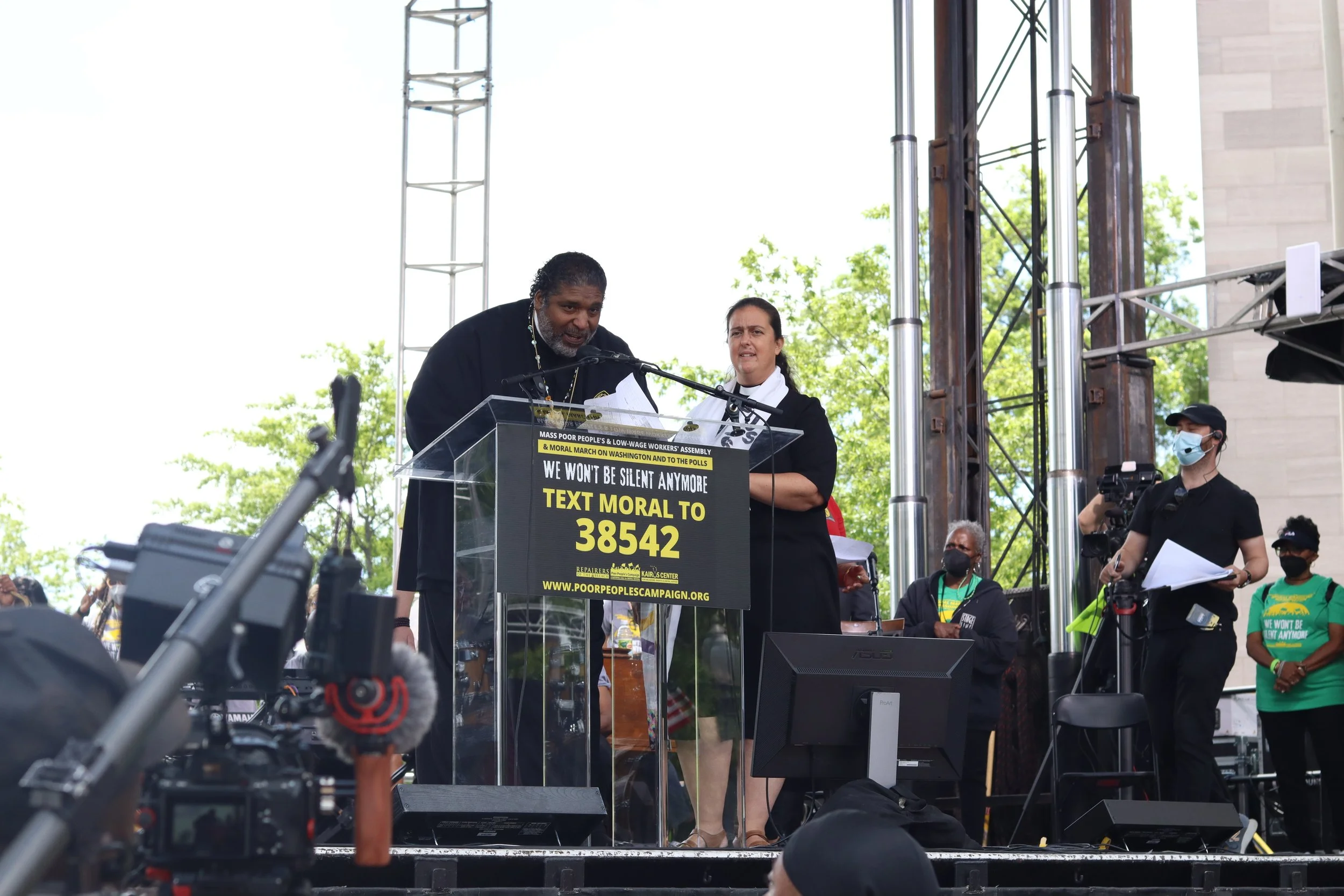
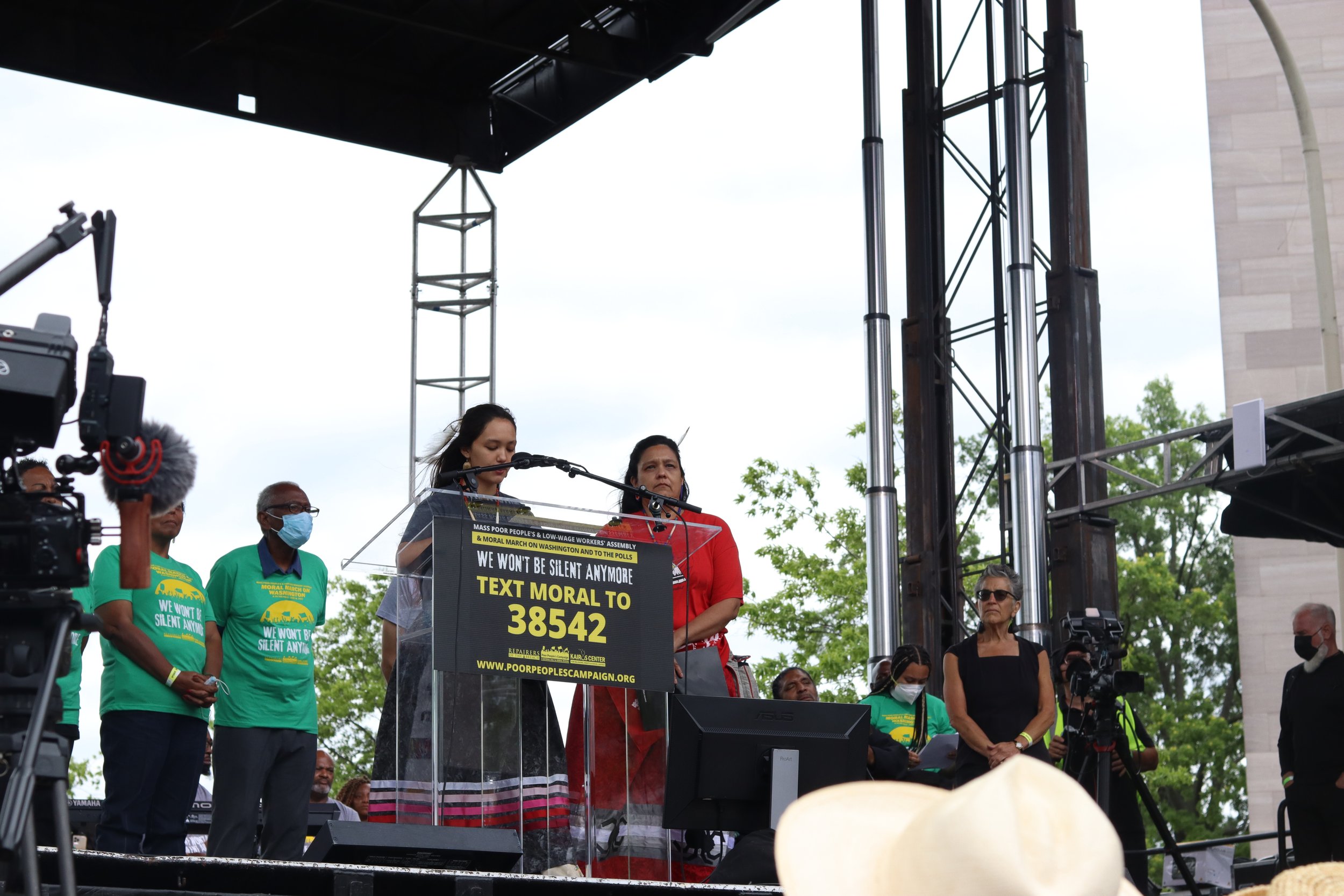
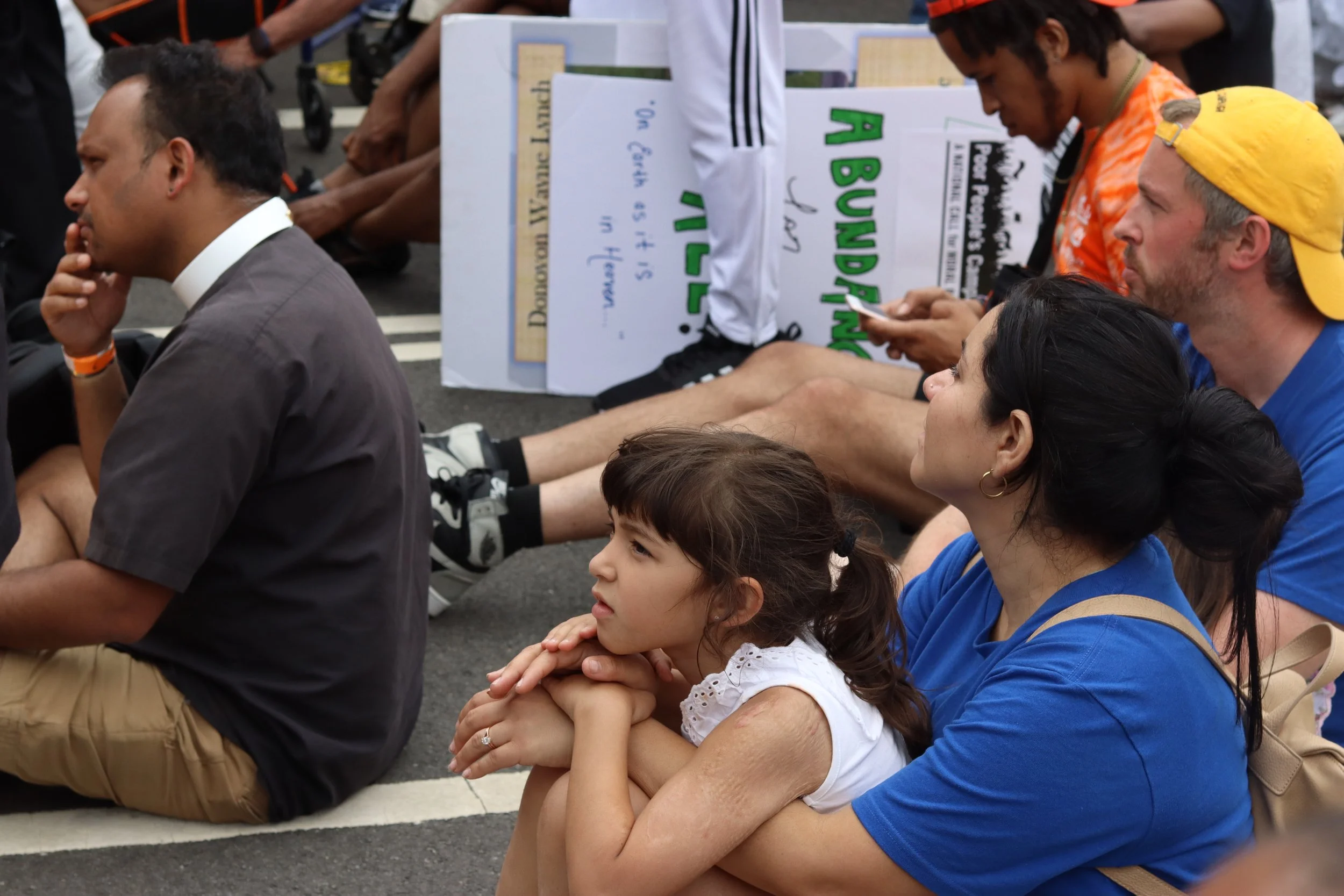
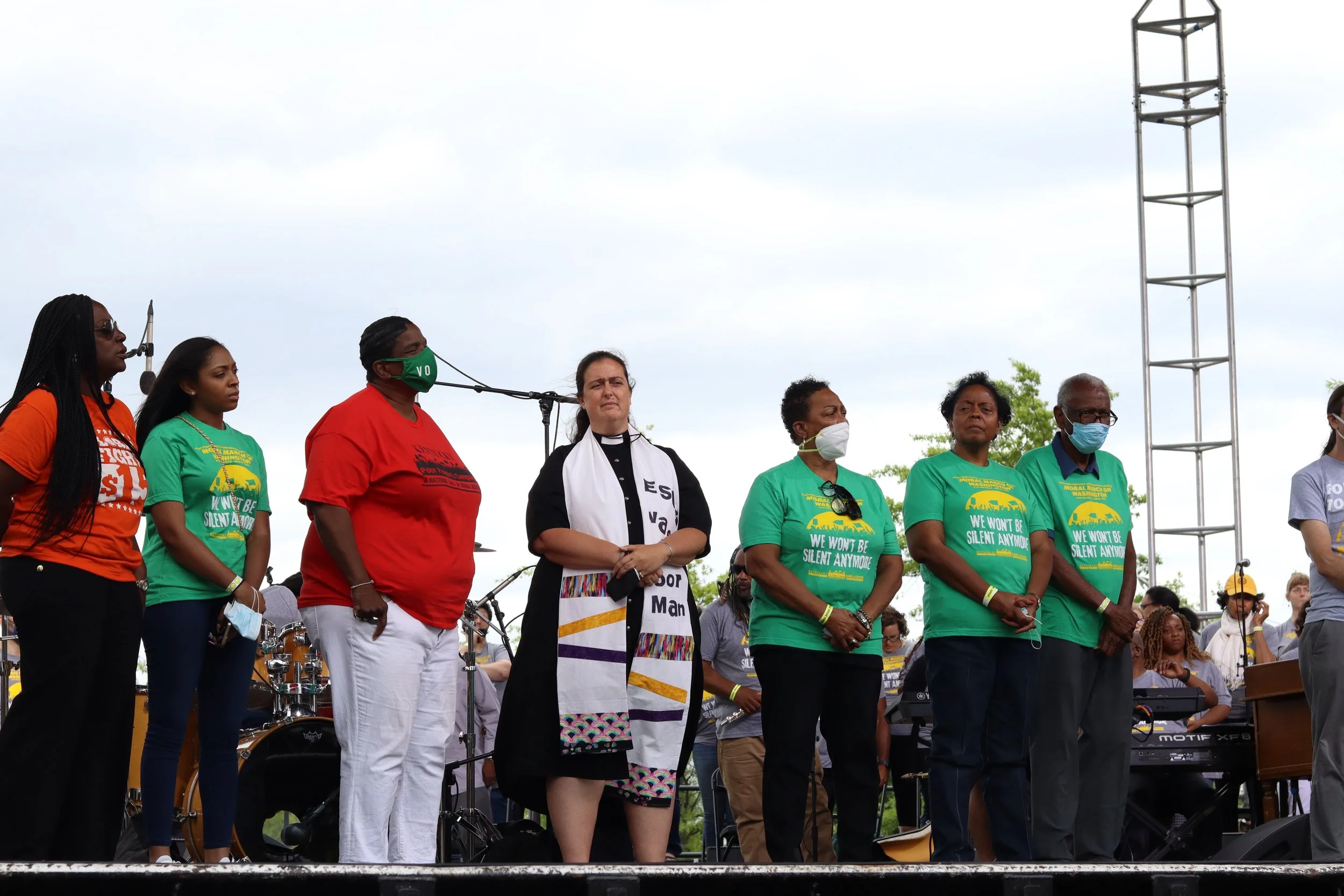
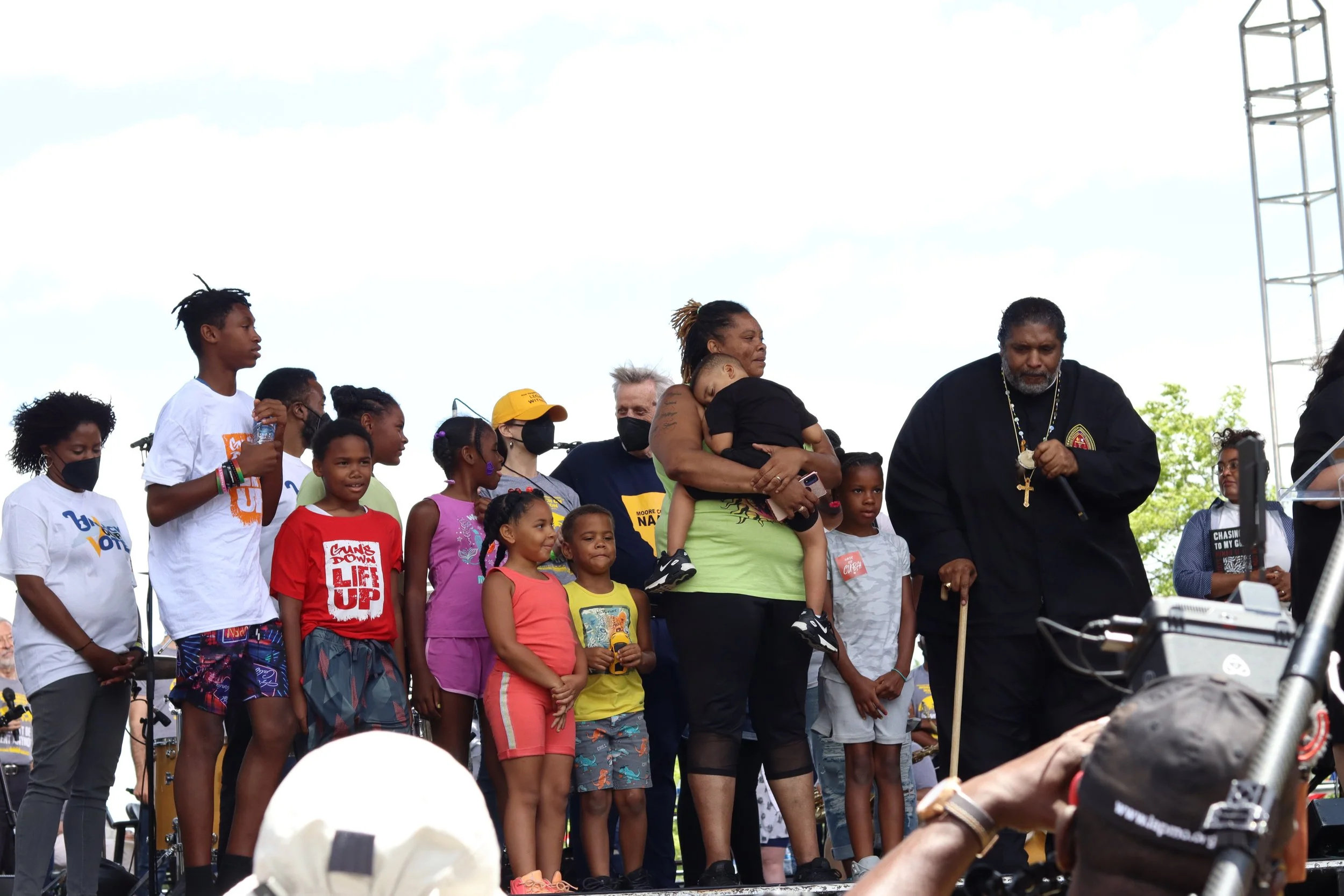
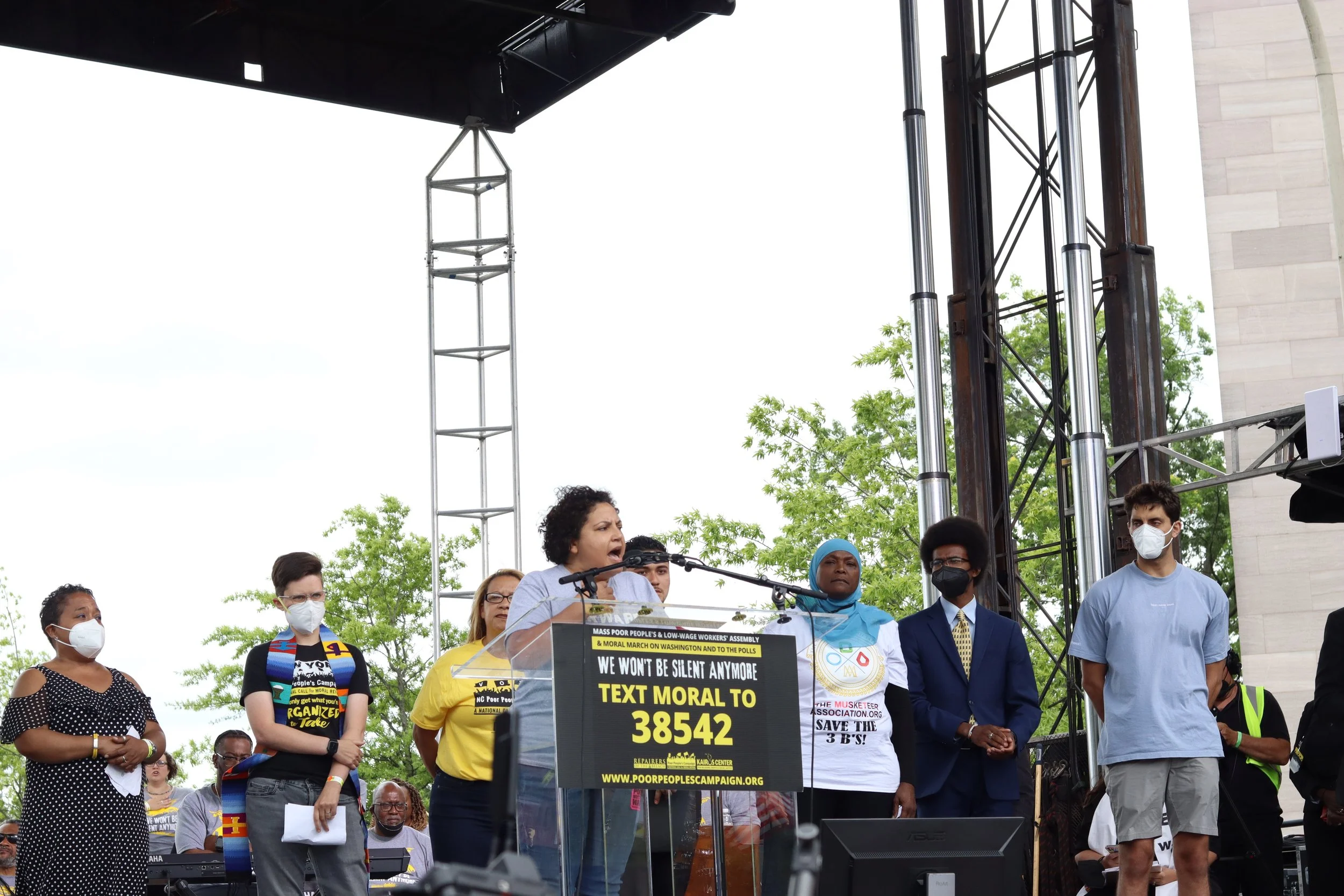
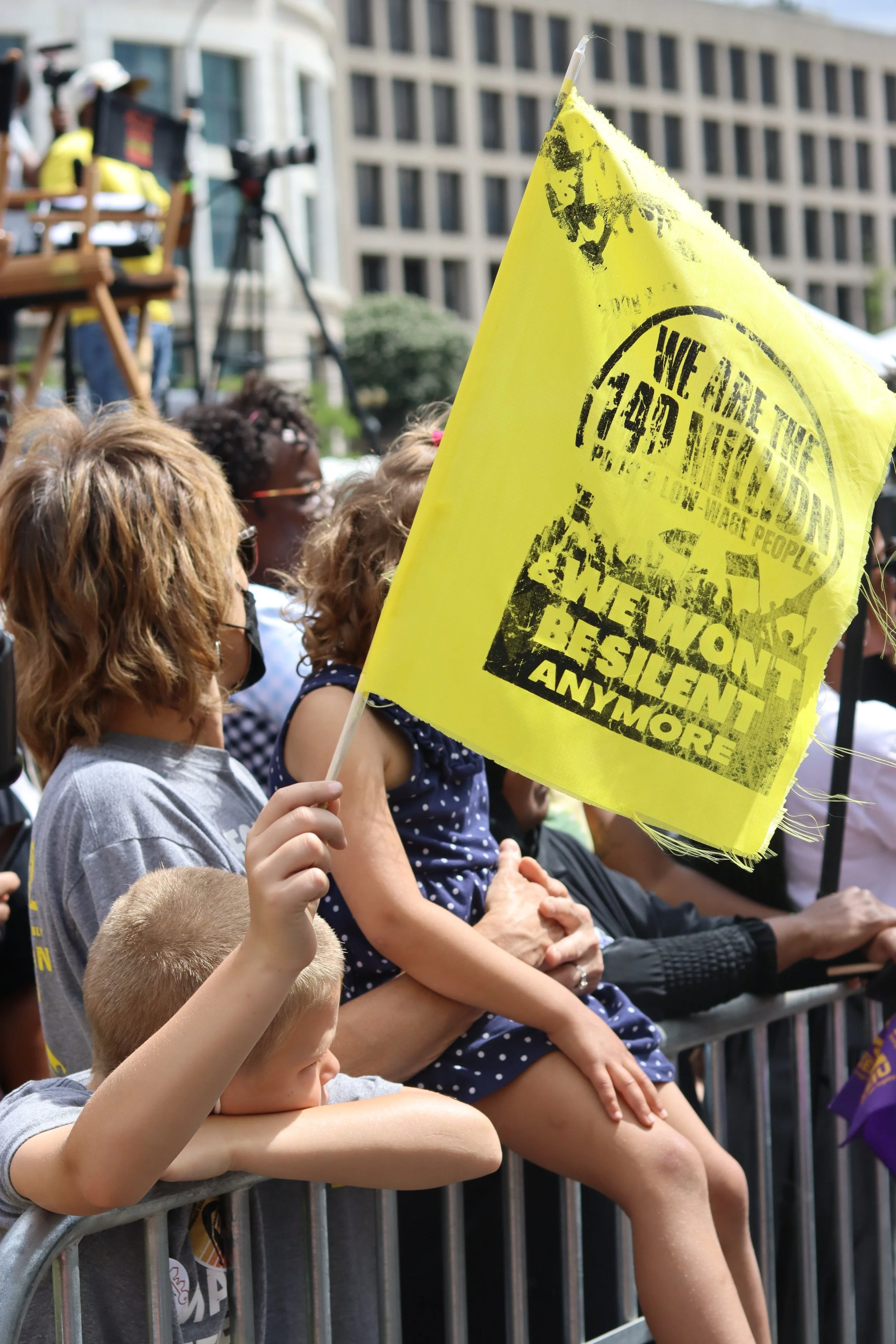
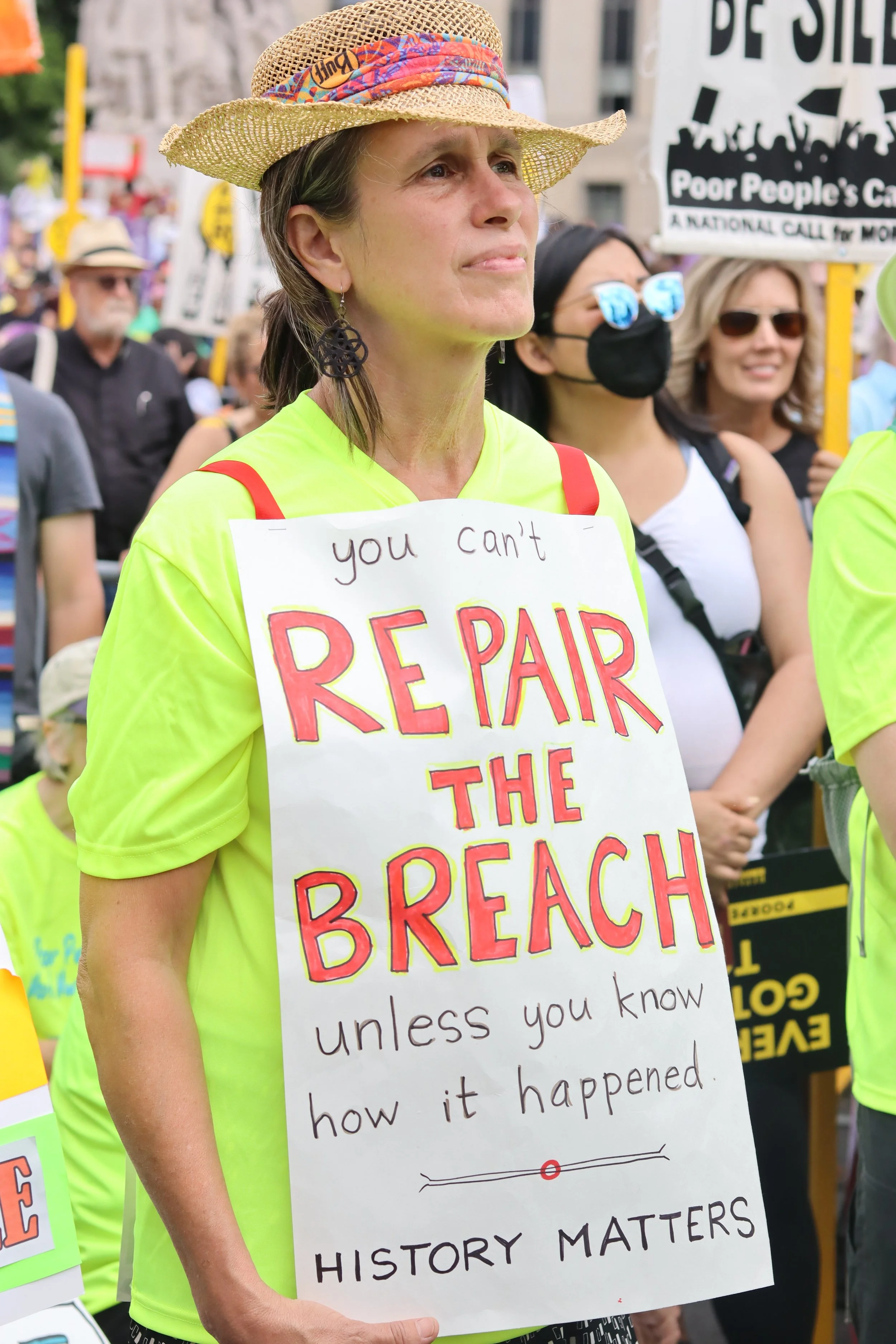
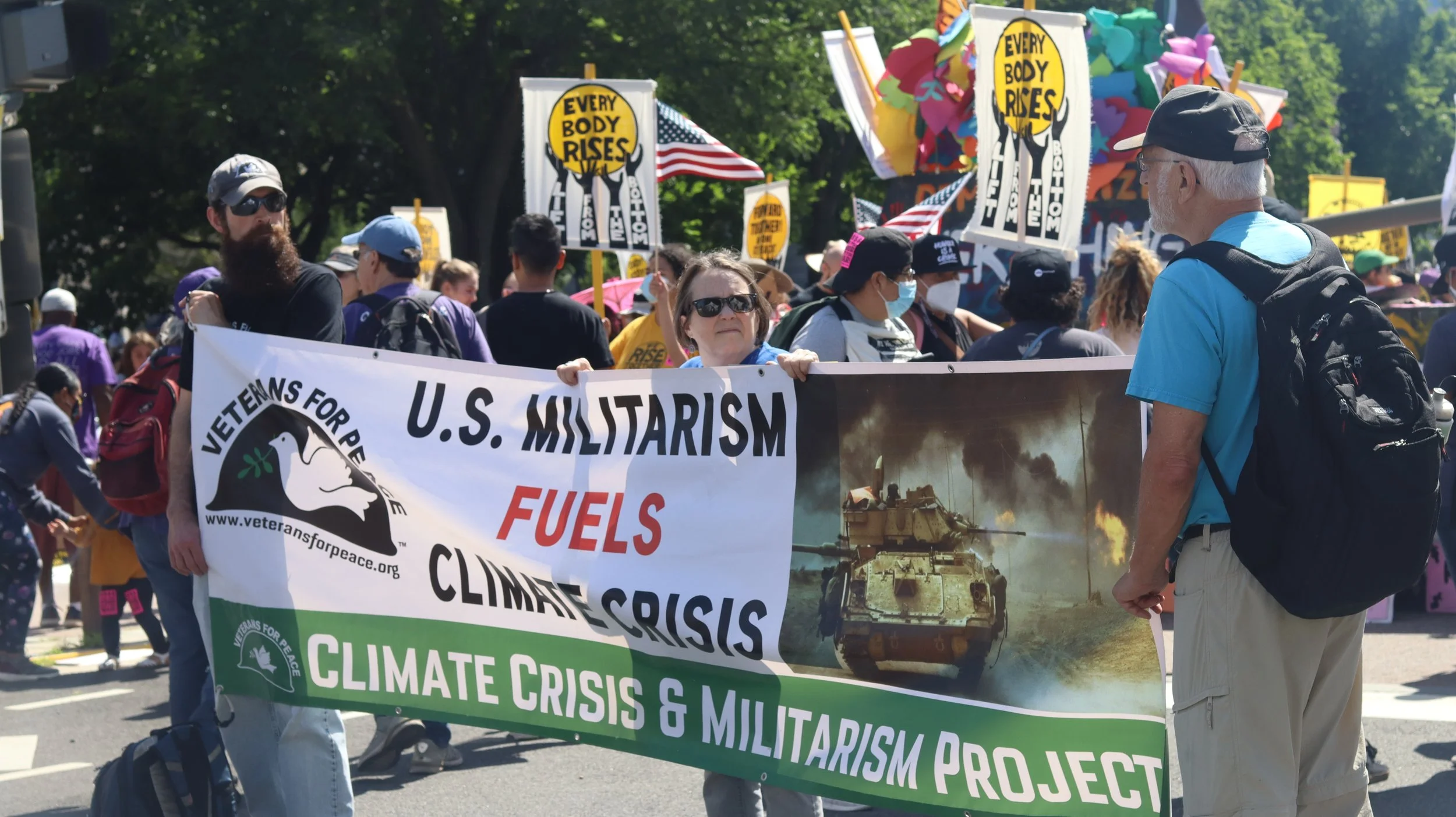
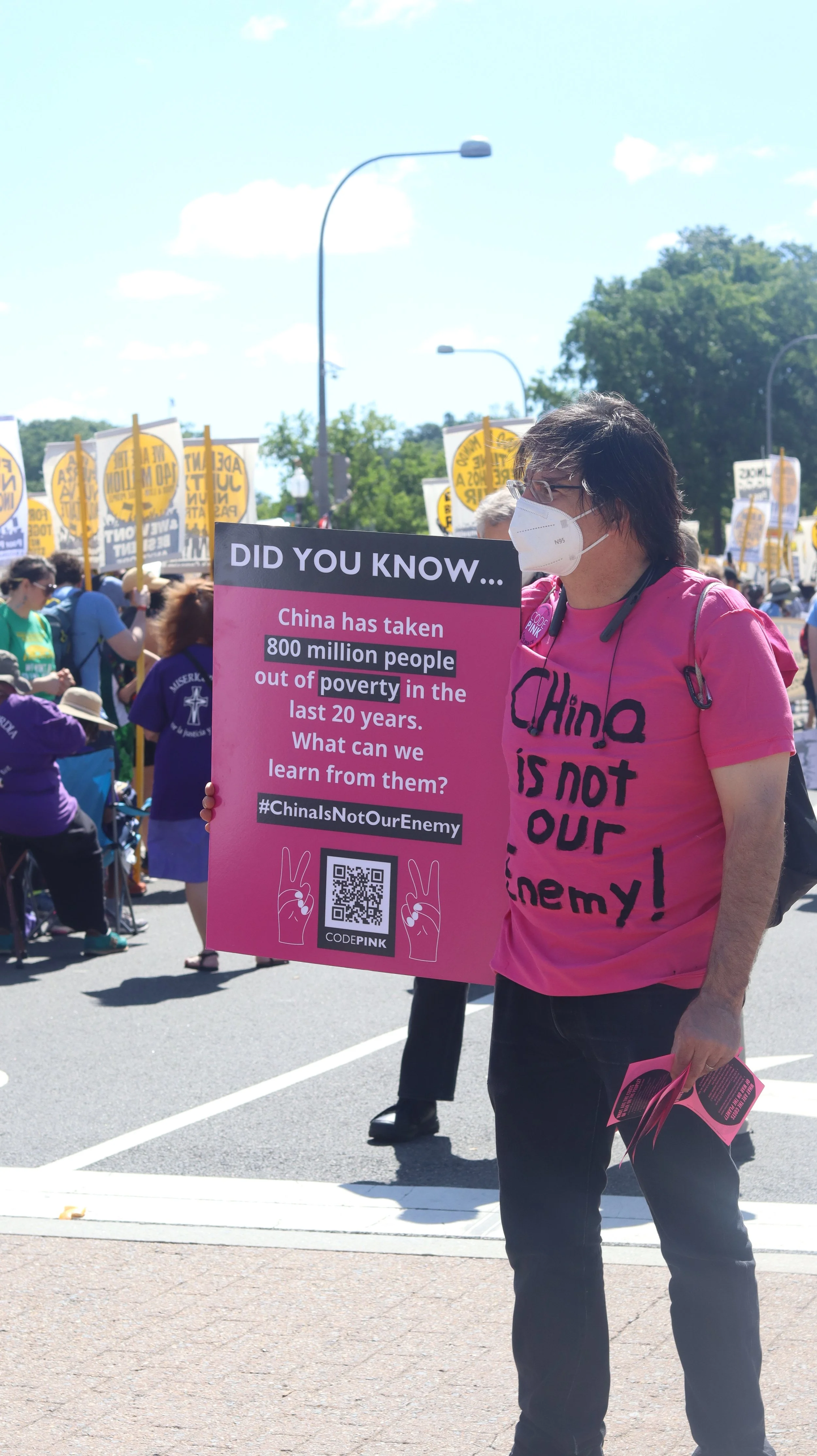
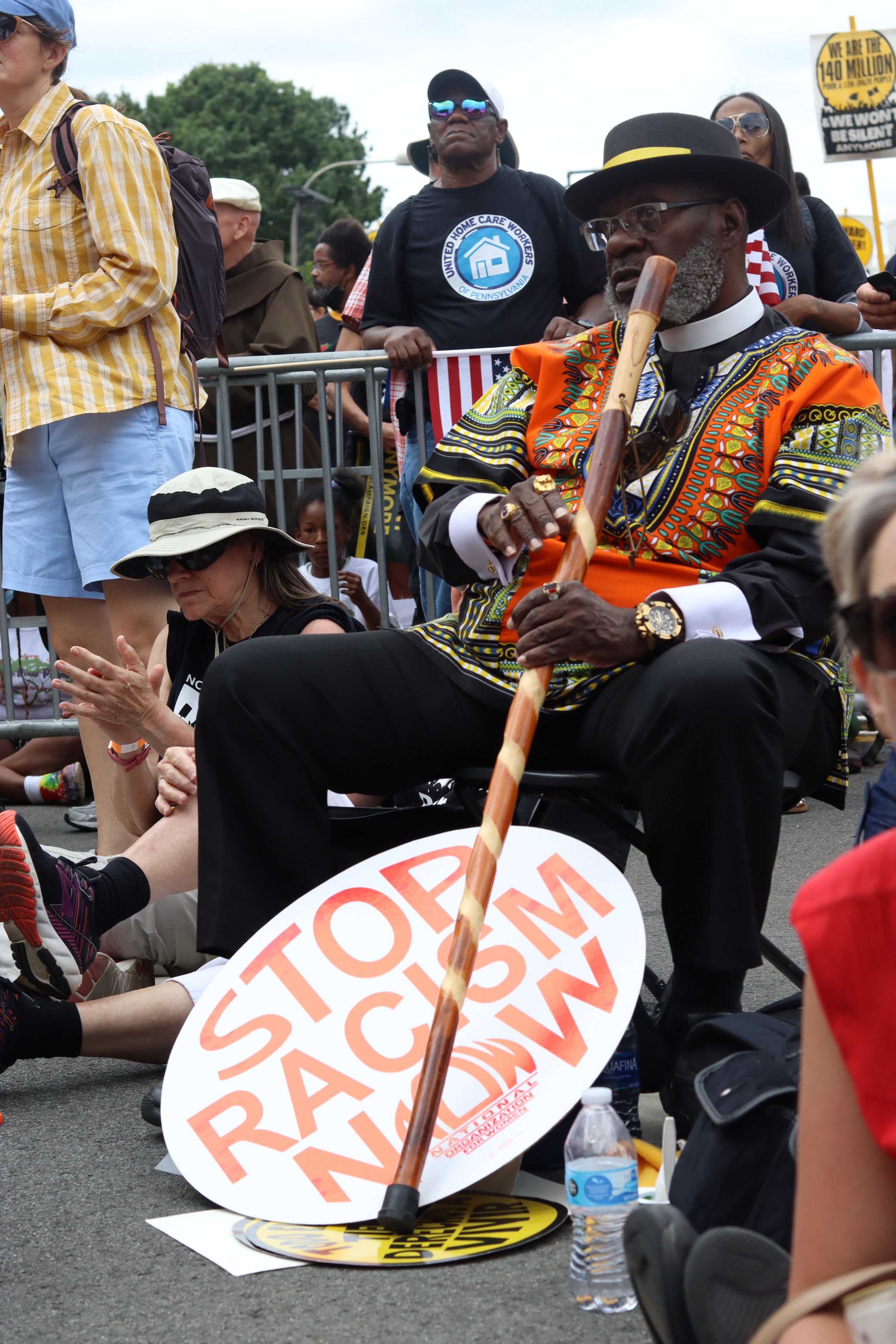
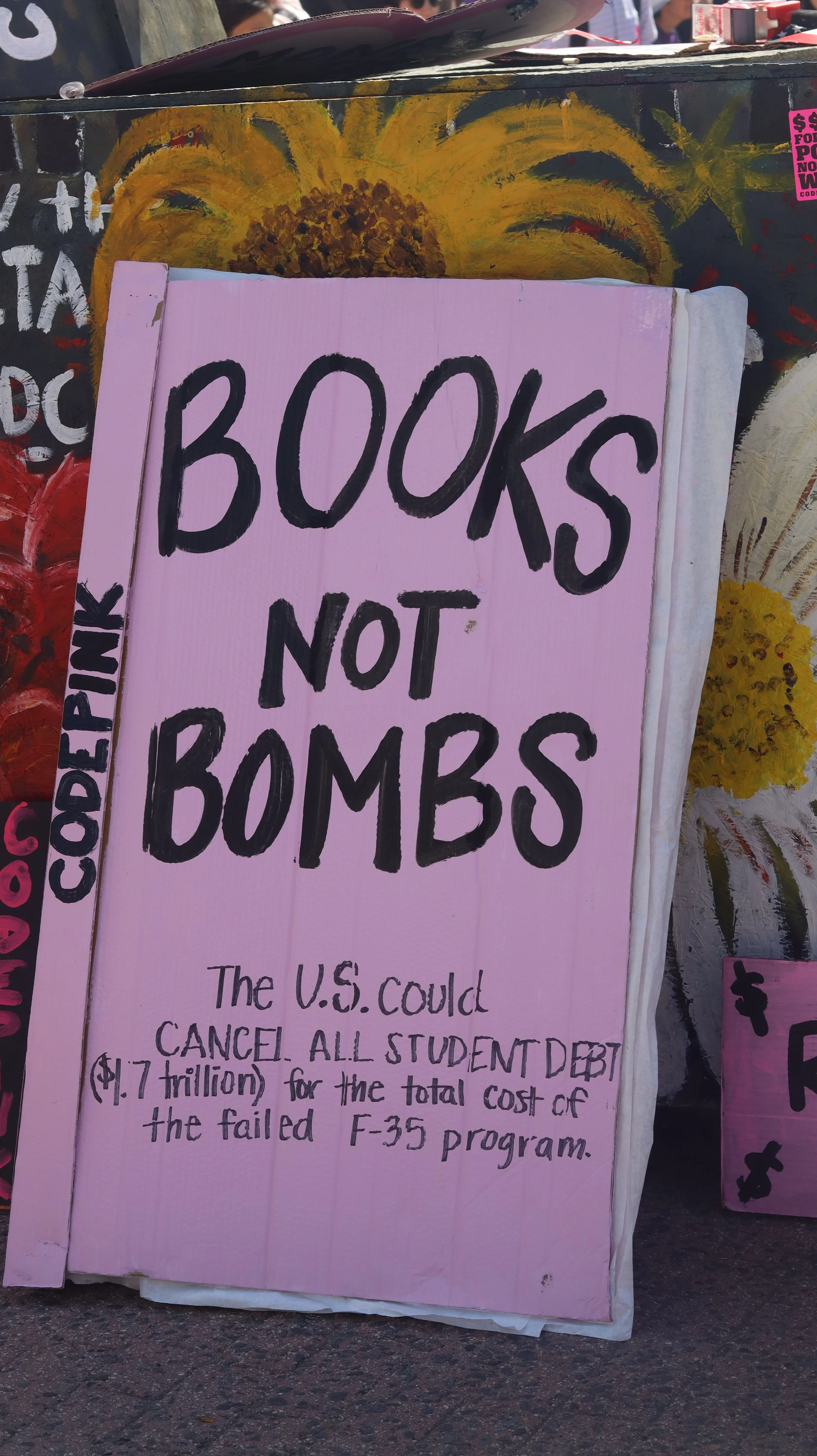
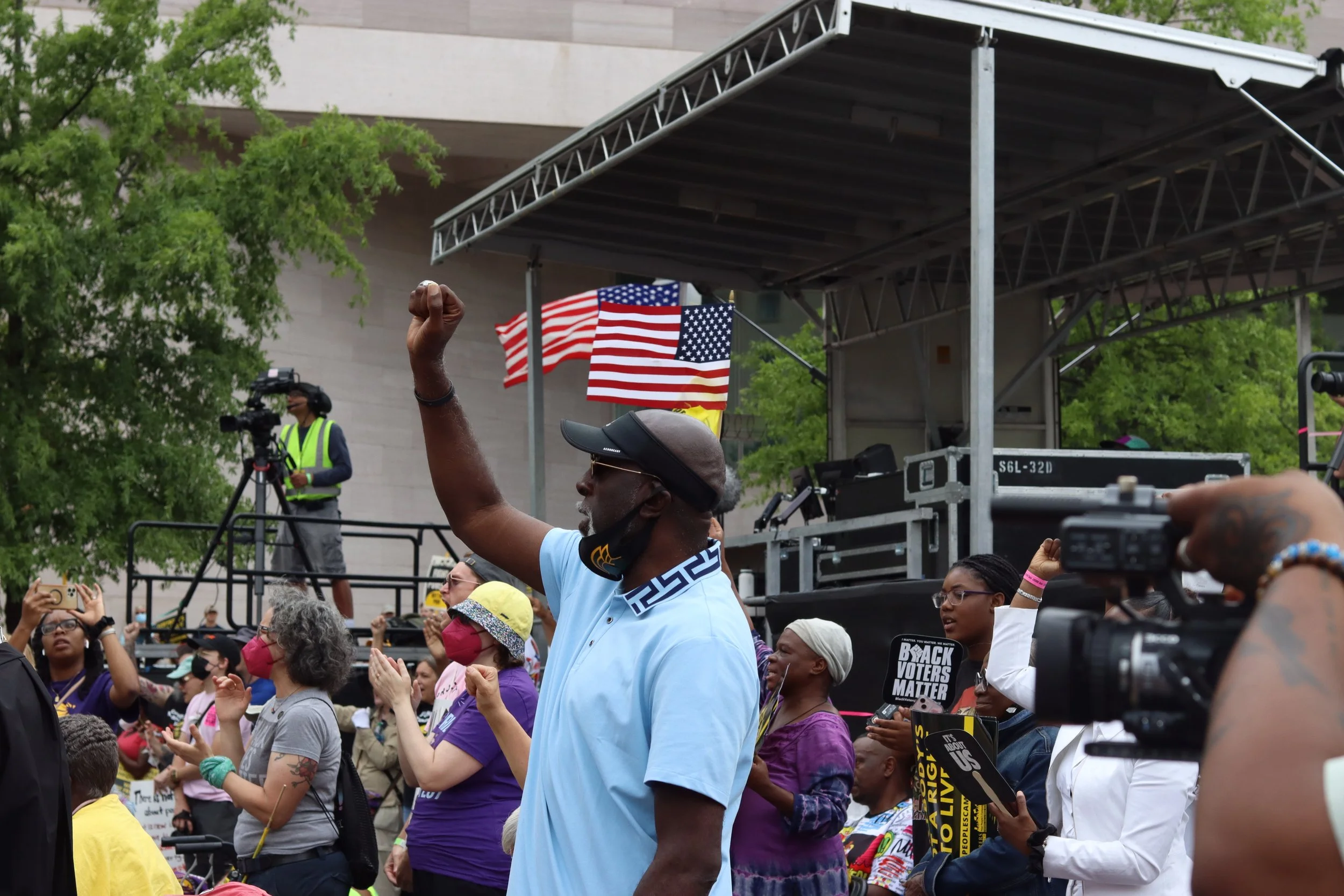
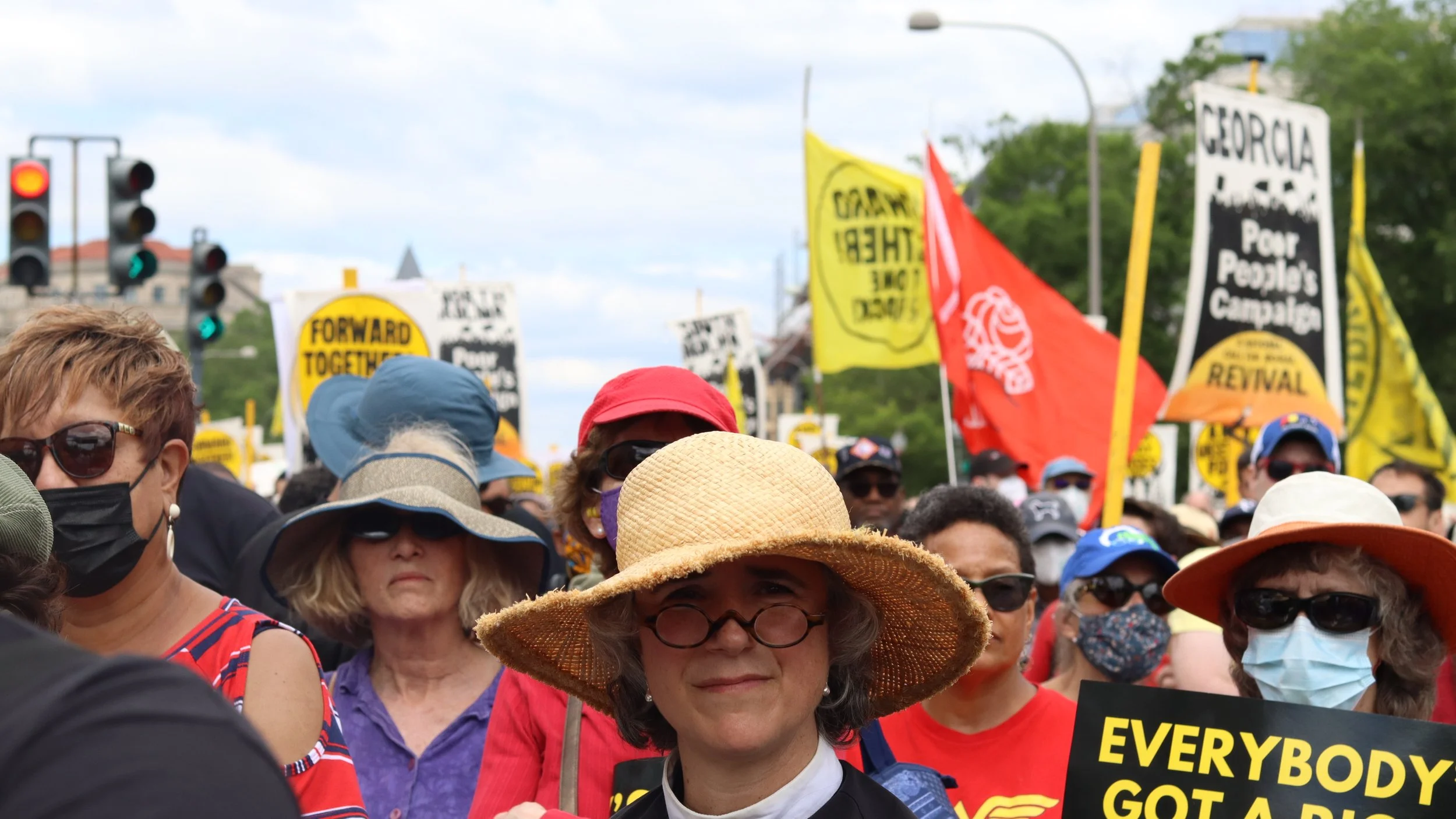
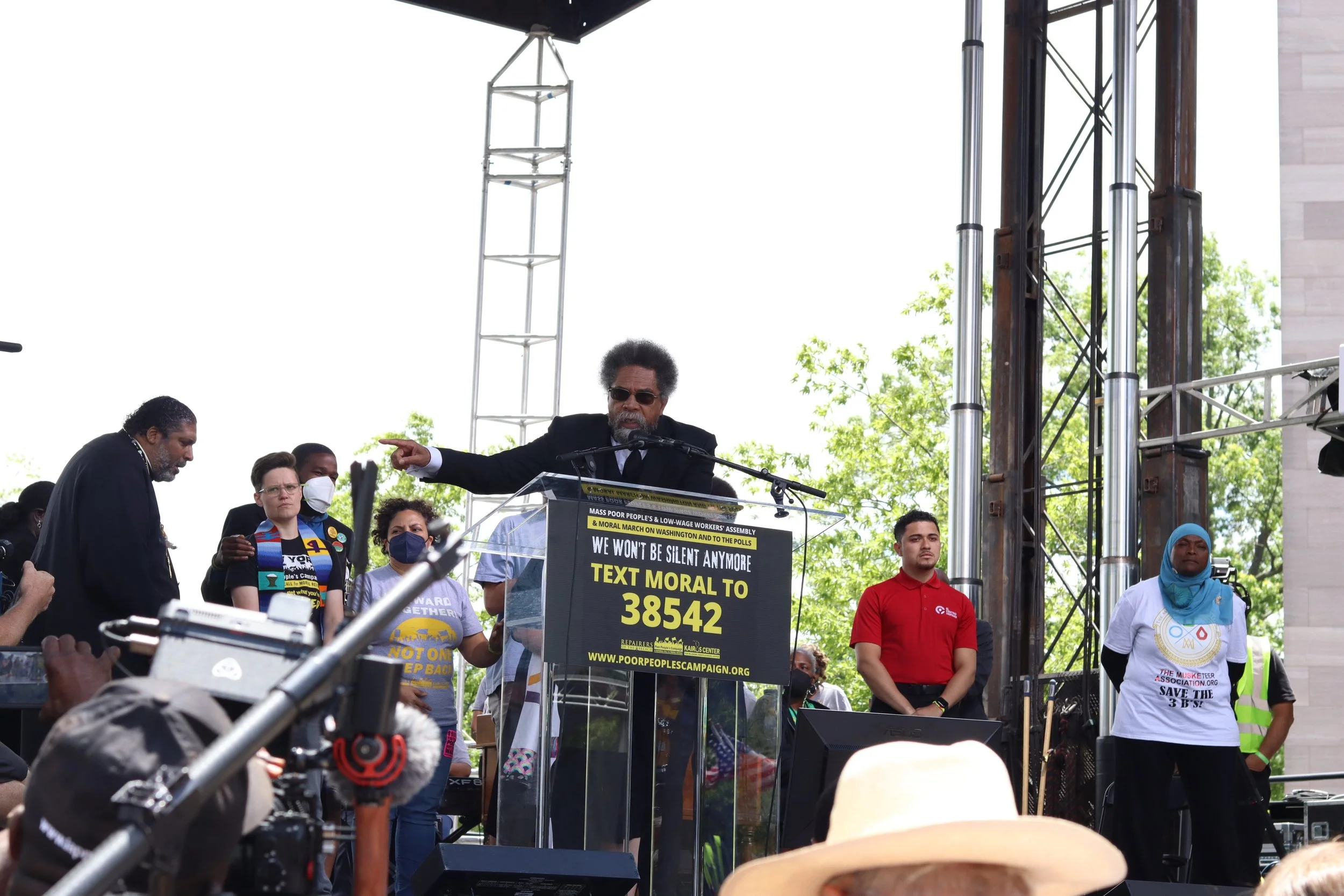
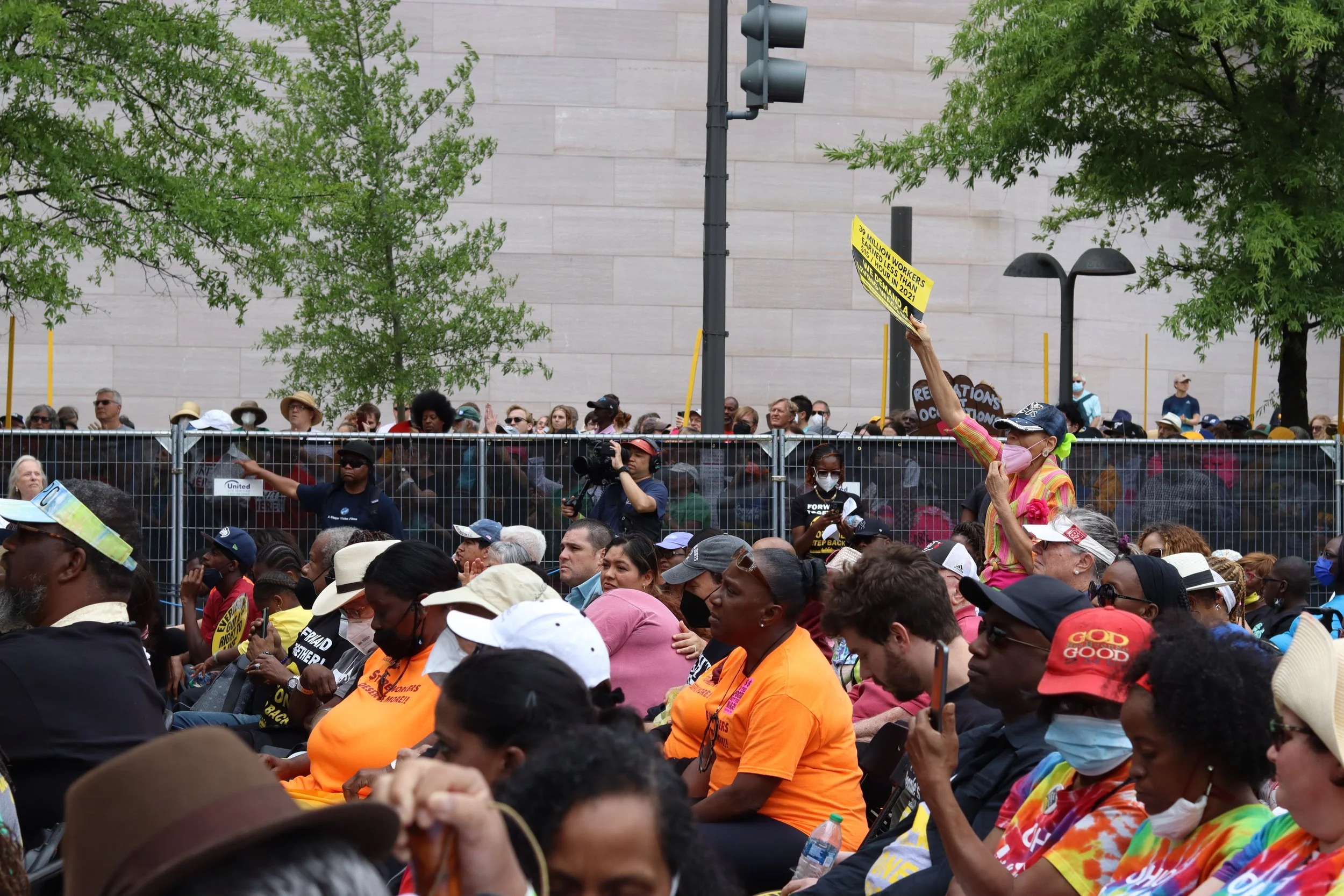
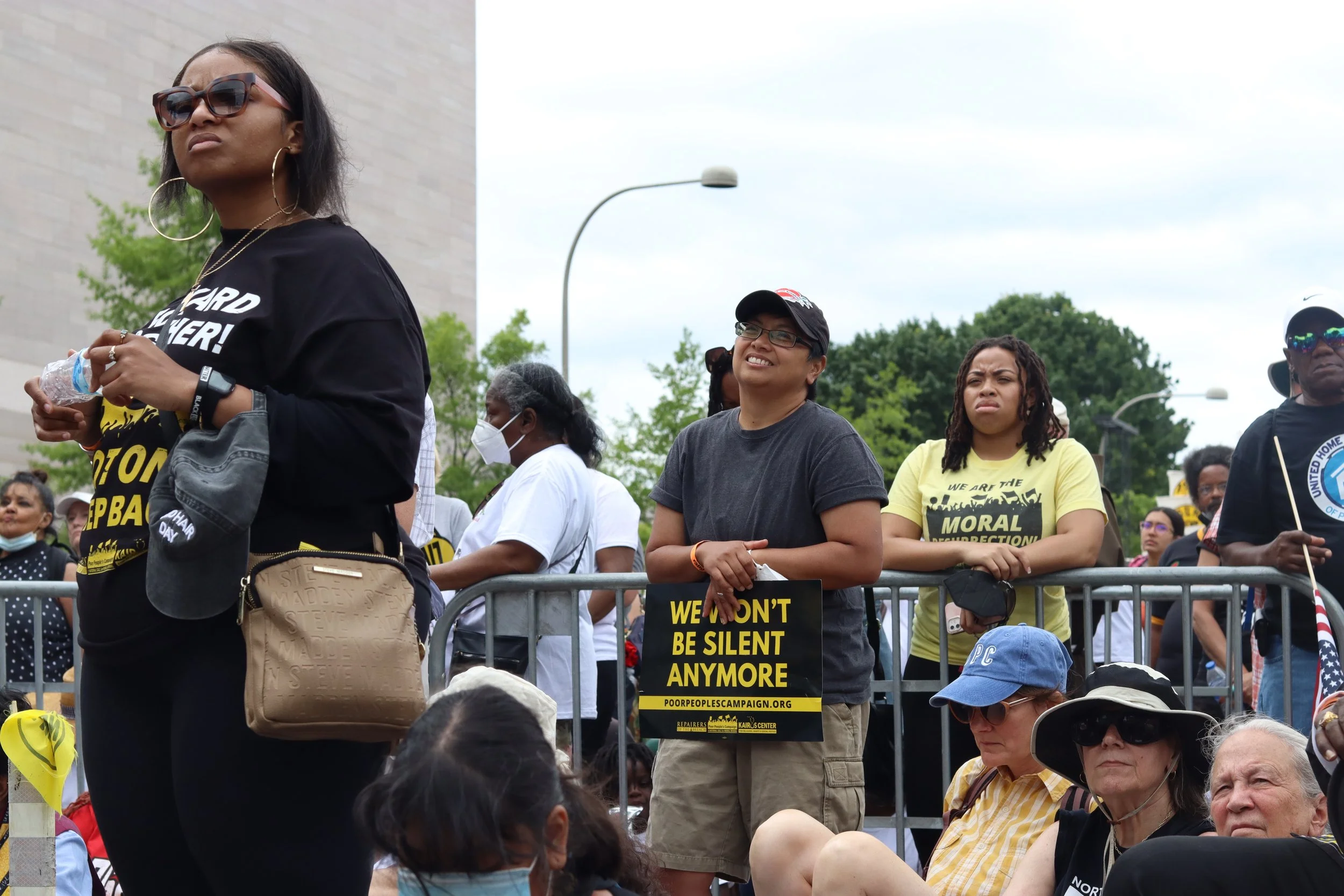
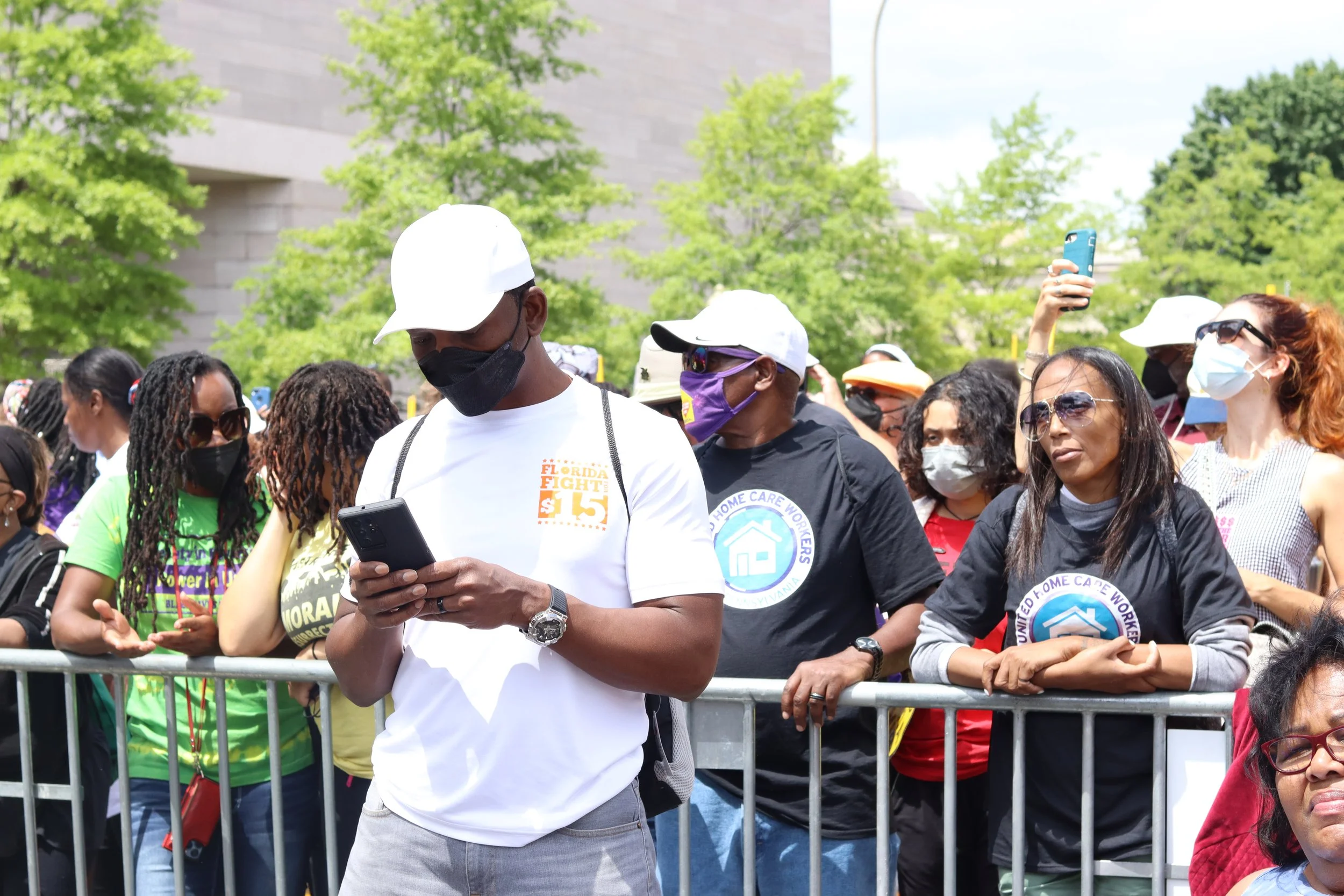
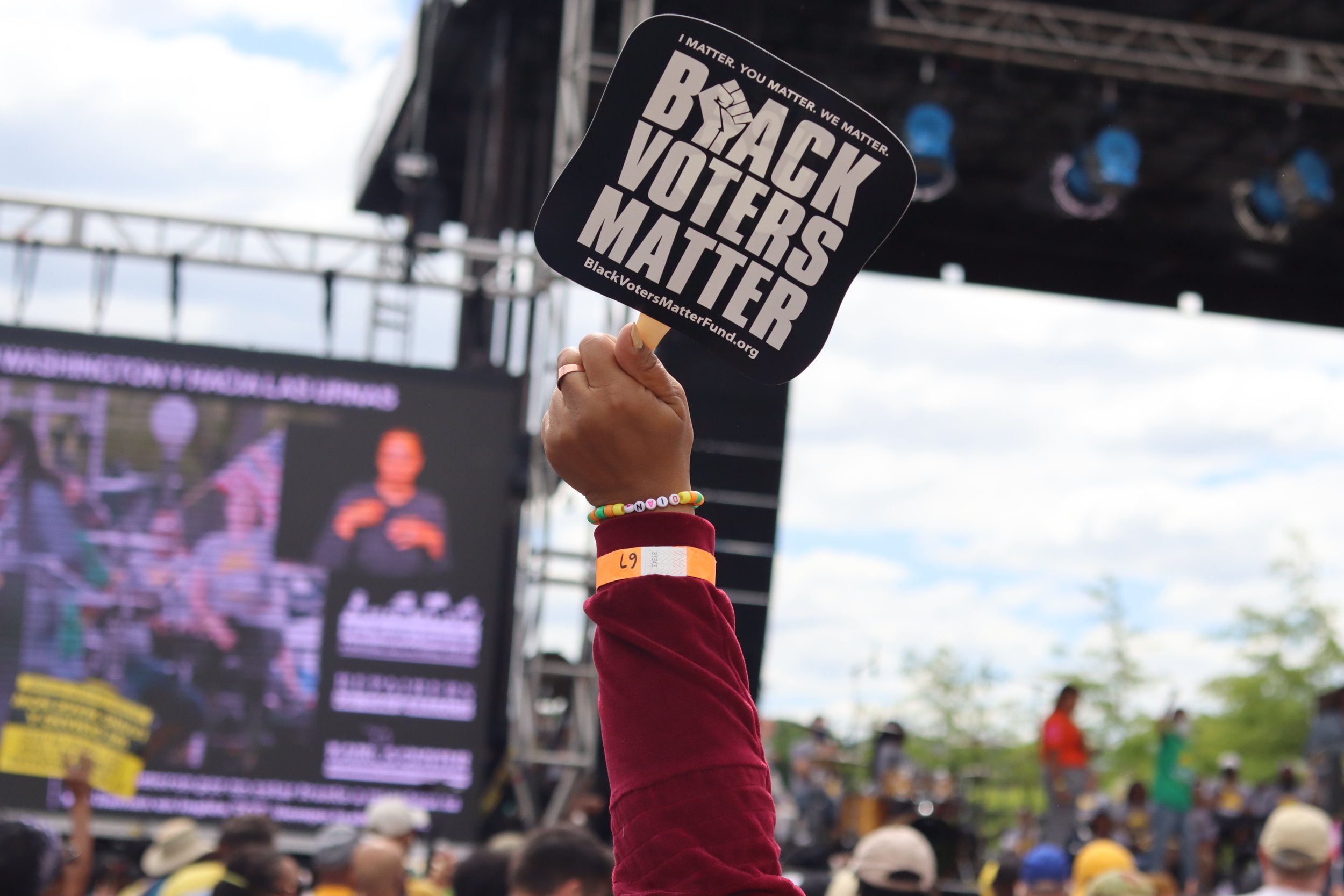
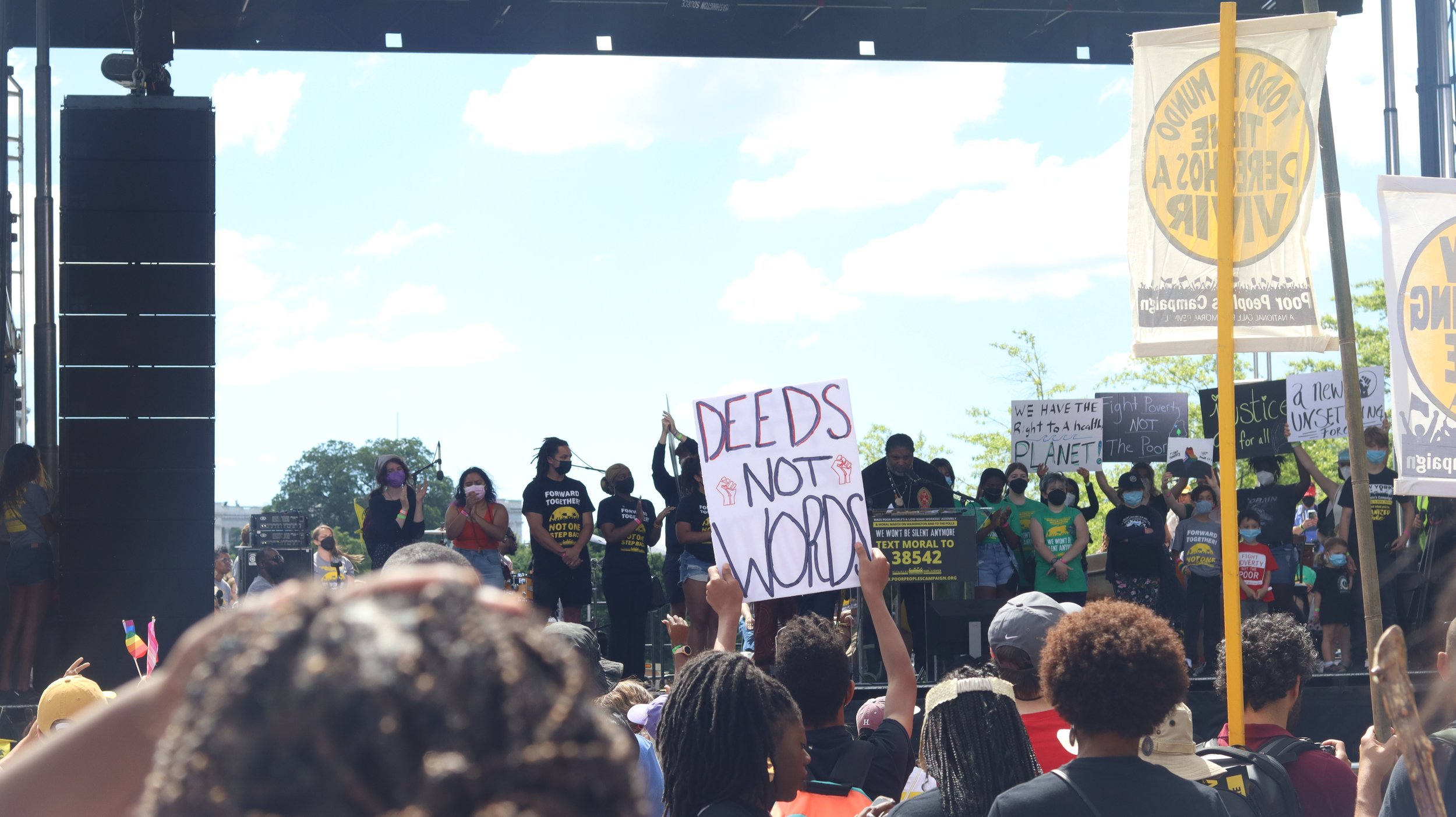
Several speakers representing the depth and breadth of the PPC took to the podium to testify to the economic, social and political challenges in America and their compounding effects on families and communities.
Nathan Fishman from New Jersey spoke on the state’s lack of mental health care. Linda Barnes from Alabama told the crowd about the poor working conditions at her local Amazon. Rev. West McNeill from New York shared stories of the poor economic conditions in her state, and Denise Coleman from Louisiana underscored the unjust treatment of the incarcerated.
Rev. Juli Bertalan of Packanack Community Church in N.J. traveled with her husband and children. She said it was critical for them all to be there and felt the event would expose her children to a movement where justice and equal protection for all are placed at the forefront.
She wanted her children to learn an invaluable lesson about “what it looks like when people come together and demand our rights and equality and you know, justice,” she said. Her goal is also to involve her church in activism work.
Like Bertalan, minister, poet and activist Rev. Robin Tanner of the Unitarian Universalist Congregation in Summit, N.J.—alongside co-minister Rev. Emily Backus—also traveled from N.J. for the event with members of their congregation. “I think particularly out ahead of the midterms, June is a pivotal moment to show your force and hopefully to also shift the conversations that are happening in the elections,” Tanner said.
In particular, she believes it will help individuals hone in on the crucial ‘issues’ they seek to bring to light. “The issues that we need to focus on and also show our power that, yes, this is a march to the polls and beyond,” she said.
A young girl holds a flyer at the Mass Poor Peoples and Low-Wage Workers’ Assembly and Moral March in Washington D.C. on June 18, 2022. (Esther Paul for Public Square Amplified)
Attendees of the rally also included youth from around the country eager to participate in this form of civic engagement. Ten-year-old Henry Lattimore felt that it was important to attend the rally and saw it as an opportunity to learn from the elders of the community. “In the future maybe I’ll be doing the same thing these people are doing,” he said. “I can learn from them, and in the future, I’ll know what to do.”
Terry’s little brother also attended the rally and shared a similar sentiment, “If you're younger, older or even old it’s still the responsibility to help the poor people in crisis.”
Kevin Pierre, the New Jersey Chair of the PPC, was proud of the Garden State for representing and accomplishing its goals. Pierre credits fusion organizing as a stepping stone for change for poor and low-wage workers’ rights.
“If people organize the way we did today, regardless of the different issues we can make a huge change in the system,” Pierre said. “It really just comes down to not being separated by other people. Those at the top already have what they need from people like us that struggle for economics or power or a decent living.”

